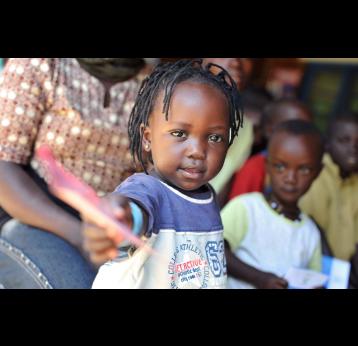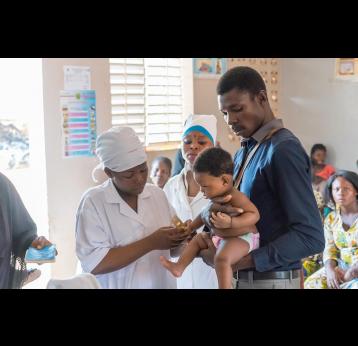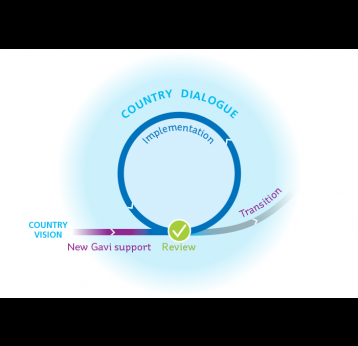Will silent reinfections drive the spread of COVID?
People who have had COVID-19 can develop an immune response that normally protects people from recurrent infection. But now that reinfections of COVID-19 have been recorded, what does that mean for our ability to fight the virus?
- 9 October 2020
- 4 min read
- by Priya Joi

People who have been infected with the SARS-CoV-2 virus that causes COVID-19 – and were either asymptomatic or managed to fight it off – might justifiably believe that they are now protected against future infection. Indeed, some countries even started talking about “immunity passports” that would allow passport-holders to have more freedom of movement and face fewer restrictions, although these have attracted criticism as they could lead to corruption as well as discrimination against those who are already disproportionately affected by COVID-19. But now the accounts of reinfection are growing, it is unclear what the implications are both for the evolution of the pandemic and the ability to develop an effective vaccine.
In August, one of the first cases of reinfection was detected by genome sequencing. The infected person was a 33-year-old man arriving in Hong Kong, whose infection was asymptomatic. Since then cases of reinfection have been recorded in China, South Korea, Europe and India, many of which were in people younger than 50 years.
Relapse or reinfection?
Since other coronaviruses, such as ones that cause the common cold, can reinfect people repeatedly, it should not perhaps be a surprise that people can be reinfected with the COVID-19 virus. A confounding issue however is the fact that in many people COVID-19 can be a recurring disease – so-called ‘long COVID’ – where the virus lies dormant for periods of time, resurging to trigger a series of relapses.
In addition, some people who still have the virus may still get a negative viral test result if the virus concentration happens to be low when the test is carried out.
This is why the only way to determine whether an infection is a relapse or a reinfection is through a genetic comparison of the virus swabbed in each test to identify how genetically different they are. Tiny genetic changes that occur as the virus evolves allow infections to be differentiated. However, reinfections are often spotted more easily in travellers – a reinfection by a virus circulating in the same location may be too similar genetically to distinguish, even by DNA testing.
Have you read?
What could reinfection mean for a vaccine?
Vaccines work by priming the immune system with a harmless version of the pathogen, or proteins on its surface. This enables the immune system to either produce antibodies that recognise the pathogen, and also develop memory cells that rapidly produce more antibodies when the body encounters the virus or bacteria for real, or it can lead to ‘cellular immunity’ in which immune cells other than antibodies are activated against the virus.
Right now, however, it’s unclear how long antibodies to COVID-19 last in the system. People infected with other coronaviruses such as MERS-CoV or SARS can still have high levels of antibodies a year after the initial infection. Those who had severe disease were more likely to have long-lasting antibodies. Around 2-3 years after infection, however, antibodies normally can’t be detected. In addition, there are many unknowns regarding the immune response to COVID-19. People with antibodies may not be immune to reinfection, and those without antibodies may still have some cellular immunity to the infection.
Even if antibodies do protect against COVID-19 infection, only a relatively small proportion of the global population – about 10% - are likely to have ever had these antibodies. Many people get antibody tests to give them an idea of their immune status, but these can be far from reliable as there are too many false positives and false negatives.
Even taking into account all these unknowns, vaccination is still our best shot at protection, even if it turns out they don’t provide life-long immunity and booster shots are needed. Moreover, vaccines aren’t only useful when they prevent disease; a vaccine may not prevent re-infection but it could confer protection against severe disease or stop transmission and prevent the spread of the disease.
It is important to note that of the nearly 36 million cases of COVID-19, which is likely to be an underestimation, comparatively few cases of reinfection have been identified. This could be because reinfections are clinically difficult to differentiate from relapses, or because a person who has been reinfected did not have COVID-19 confirmed the first time they were infected and so there is no sample to compare with. In addition, many reinfections seem to be milder in severity, or even asymptomatic, so may be difficult to identify.
What will be important is monitoring reinfections over the coming months, while vaccines are in development. The European Centre for Disease Prevention and Control has called for data on reinfections to be included in surveillance systems to improve our understanding of the frequency of reinfections, and to gain better insights into their clinical characteristics.
Learn more about Gavi
More from Priya Joi
Recommended for you












